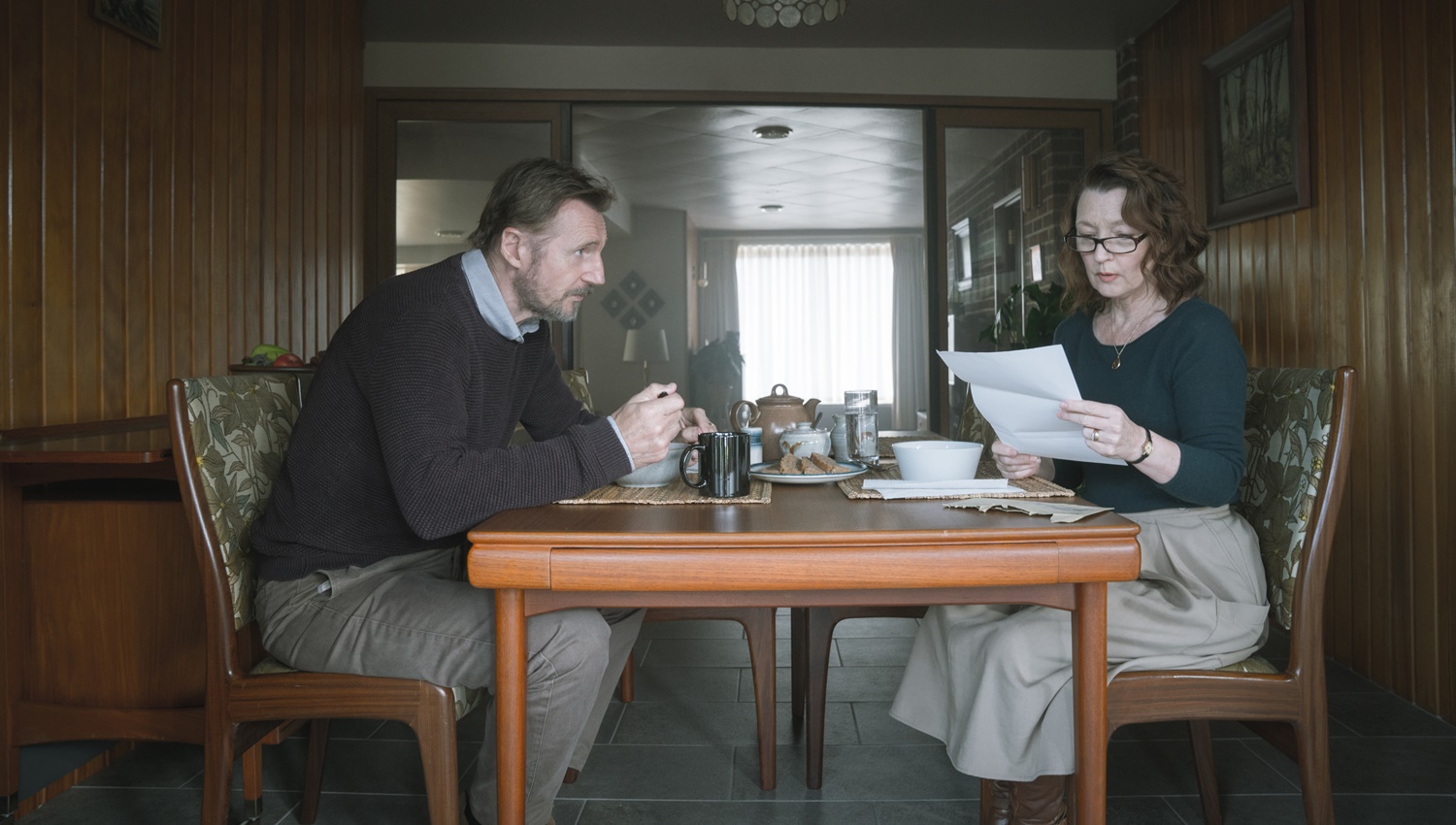
Ordinary Love
Dustin Chase
Just when you think you have seen every topic about dealing with cancer, filmmakers Lisa Barros D’Sa, Glenn Leyburn strip away melodrama and focus on love under a microscope. They take a barebones script focused on a husband and wife coming to terms with cancer and allow these actors to dig into the most identifiable little moments between the bigger moments these films typically concentrate on. Aside from two of this year’s better performances, perhaps Manville’s all-time best, “Ordinary Love” works on a level that allows each audience member to see their own parents or themselves. The arguments about tomato juice or testing frequency invite us into the mundane but in charming ways that draw the viewer into this small world. It’s intimate in detailing emotions with both characters and coping mechanisms between men and women reinforced by the dual perspectives of the two directors.
Tom (Neeson) and Joan (Manville) walk a few miles to the end of the street, rounding a mile marker post to get their agreed-upon Fitbit steps in each day. In their early 60’s, Tom says they are just at that age where things start to fall apart. Joan notices a lump in her left breast the following Christmas, which she has checked immediately. “I know I’ve got it,” she says before the first test result comes back. She’s right and surgery, recovery, chemo, all begin to line up for the couple’s New Year. With no family to speak of, their only child passed away, they solely depend on one another. Tom redirects his concern so he can comfort his wife, she’s scared and prone to anticipate the worst. Joan is reacquainted with one of her daughter’s grade school teachers, Peter (Wilmot) a terminal cancer patient. He becomes a caveat for her resilience and strength, understanding his fate could be her own.
It’s intimate in detailing emotions with both characters and coping mechanisms between men and women reinforced by the duel perspectives of the two directors.
“Ordinary Love” details the unseen frustrations of cancer, having conversations around the topic instead of the familiar tropes. The ‘Ordinary’ part of the title is important because there is nothing extraordinary about this couple. They are the neighbor you wave to each day or the co-worker you say high to in passing who is managing tragedy behind closed doors, leading private lives most are unaware of and coping with ironies of life. Neeson traded a respected acting career for violence and Hollywood action movies, retreating from stories that meant something 20 years ago like “Schindler’s List” or “Nell.” “Ordinary Love” marks a return to substance for the Neeson. Manville, on the other hand, has made smart diverse choices throughout her career. Enjoying a deserved renaissance following an Oscar nomination for “Phantom Thread“ leads the film in both the larger moments as well as the smaller internal ones.
Owen McCafferty’s script subtly weaves in a subplot regarding Peter the teacher and his partner who are dealing with the final stage of cancer. It’s Tom’s worst fear realized, seeing this couple prepare for the inevitable. He watches Peter’s younger husband Steve (Shah) from a distance, sitting alone, motionless in the cafeteria; a place he also retreats to contemplate his worst fears. Two separate couples become unexpectedly present in each other’s lives. Both alone outside their marriages, facing a disease that could reduce each to one and one. Neeson and Manville have wonderful chemistry, bickering back and forth when what they really want to do is scream or cry. Ordinary love is what we all yearn for without recognizing it. Not rich lives, fast-paced, extreme lifestyles, just two people sitting at home being with each other. This story clarifies what’s important, what’s essential, and how ordinary can be the most loving thing in the world.
Final Thought
Neeson and Manville give two extraordinary performances in Ordinary Love.
